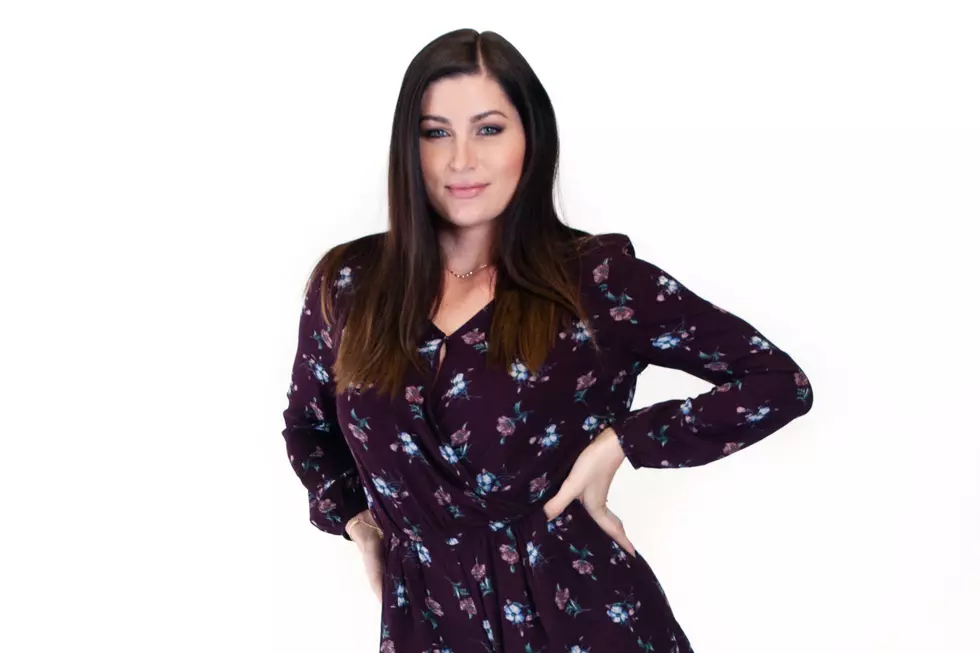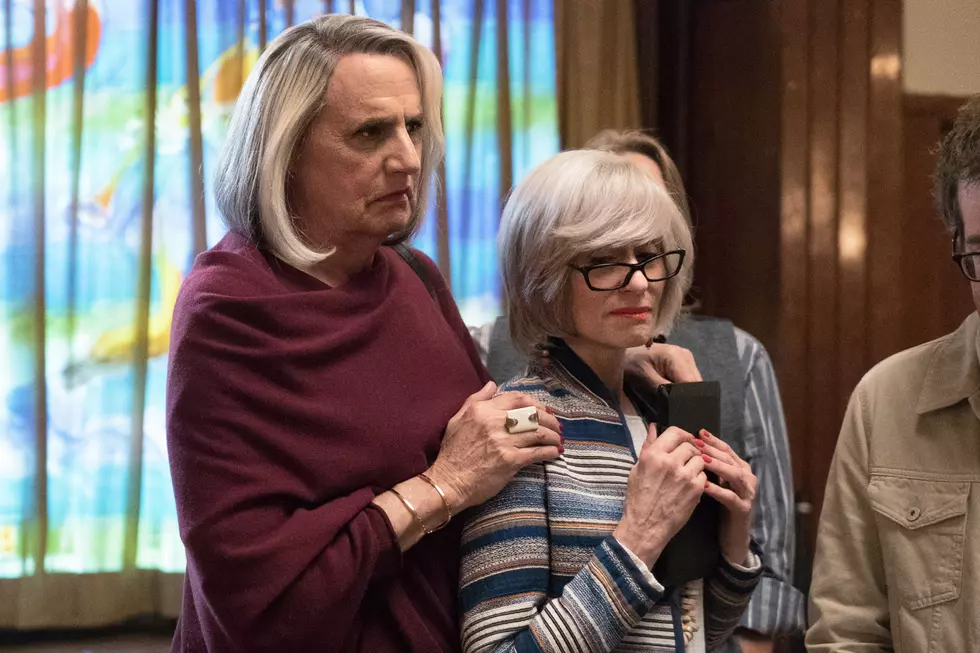
‘Transparent’ Star Trace Lysette Wants Trans Actors to Be Household Names
This interview is one part of ScreenCrush’s new franchise Our Hollywood, a month-long series about the past, present and future of transgender visibility in film and television. Stay tuned throughout June’s LGBTQ Pride Month for in-depth profiles with photos shot by Amos Mac, essays and exclusive videos.
Trace Lysette’s Shea was introduced on the first season of Amazon’s Transparent, but it wasn’t until last fall that she finally got her own episode. In “The Open Road,” Shea goes on a road trip with Jay Duplass’ Josh where their playful flirtation culminates into a heated argument in a water park. The episode touches on the difficulties of dating while trans, stigmas around HIV, and the often dangerous and hurtful misconceptions cisgender1 straight men can have about their attraction to trans women. It’s a storyline that could have easily gone awry in the wrong hands, but Lysette brought an unshakable power and authenticity to her performance. It didn’t only move the needle for positive trans representation on screen, but was a perfect showcase for why trans actors should be cast in trans roles.
Lysette, who’s in Emmy consideration for Outstanding Guest Actress in a Comedy, is helping improve visibility for the trans community in Hollywood, but she also knows there’s more work to be done. “We are perpetually the victim or the villain or the sidekick,” Lysette told me, noting the many stereotypes that have long trailed trans identities in film and television. “We want and are able to play leading roles, and I think we can carry a film.”
During an interview in Los Angeles last month, the actress, who’s appeared on Drunk History, Law & Order: SVU (in a non-trans role, mind you), and had a recurring part on Starz’s Blunt Talk, told us why Hollywood needs to stop limiting trans talent. Lysette also talked about experiencing transphobia firsthand in the industry and the class Laverne Cox referred her to that transformed her approach to acting.
After you’d been working in the industry for a while, Laverne Cox recommended you to Brad Calcaterra’s LGBTQ acting class. How did that help or change your approach to acting?
Prior to taking Brad Calcaterra’s class I was just existing in the industry as a cis female actor. I didn’t disclose my trans-ness to anyone. My agent knew and that was it. That’s what I was told to do by a previous acting teacher out of fear that I wouldn’t work. So when I took Brad’s class it was at the suggestion from Laverne Cox, who is a good friend of mine. It was a way for me to kind of tap into that journey and all of me and my trans-ness, my struggle and my pain, and talk about it in a way I had never really talked about in front of an acting class before. It opened the floodgates for all of these emotions that I believe took me to the next level in terms of acting. It was amazing for me.
What has been the biggest difference between when you were told to only go out for cis roles and now?
Well, now the challenge for me is getting back to playing cis parts. Now that I’m out there and it’s known that I’m trans, I think that sometimes might hinder my opportunity in snagging a big cis role. I just believe that for us to move forward we have to be cast in not just trans parts but cis parts, especially the big ones. We rarely get to play the protagonist. […] I think that we’ve been hidden for so long and we’re still waiting to see our stories told our way in the most authentic light.
You starred in an indie action film that never came out because they learned after filming that you were trans.
Yeah. We shot it and I booked Transparent after it. For whatever reason, they took a long time with production. It was very low budget, so it’s probably better that you didn’t see it. [Laughs] Then I got a nasty email from the producer after Transparent came out telling me that I was a fraud and my womanhood was a fraud, and that he didn’t give me the rights to use any of it, even for my reel, and that it would not be released. […] It did show once in Times Square at a film festival, and it was well received. Even though it wasn’t this big blockbuster, I was still proud of the work that I had put in. All of the fight choreography I had learned over an eight month period. It was a dream of mine to be in an action film. It just made me feel sad and question myself and my self-worth and if I should even be trying to do this.
What’s one way Hollywood has gotten trans representation wrong over the years?
We are perpetually the victim or the villain or the sidekick. We’re just tired of being the token. We want and are able to play leading roles, and I think we can carry a film. I think we are interesting. I think our stories are complex and compelling, that people want to learn about us. And whether we play trans or not, we’ve been through a lot that can aid our character work. It’s kind of our secret weapon that people don’t really know is there, because we are survivors and we’ve been through so much. They have yet to discover how much magic we can bring to a project.
You’ve played recurring characters on Transparent and Blunt Talk, but have yet to get cast as a lead. What needs to happen so Hollywood casts trans actors in leading roles?
It’s just breaking that glass ceiling. It’s someone higher up taking that risk and granting the access to really let us shine. It’s someone having the faith in us that we deserve to be seen and heard and not minimized.
Minorities can often be limited and categorized by their identities alone – an actor labeled as a “trans” actor, a director as a “black” director. What’s your perspective on that?
It’s tough advocating for trans visibility and not being pigeonholed as just a trans actress. But I lived so long denying that part of me that I feel like it keeps me sane to fight for my people. It’s a big part of why I wake up in the morning. So it is a risk, but at the same time it’s a blessing. It’s kind of a double-edge sword because I don’t want to be limited to trans roles, but at the same time I think that it’s a necessary fight that has to happen before we can move on.
How do you feel about taking roles that may be stereotypes of trans identity?
It’s frustrating because you have to work, right? I think there are very few of us who are in a position to say no to a role. So for now I think it’s about us really just getting the work, but at some point a certain level of success is reached and you can say, “No, I’m not going to do that anymore.” That’s a very personal choice. It’s not my place to tell everyone how to go about it, but I know at some point we’re going to burn out on playing the token or the sex worker, the victim, the bit part.
What is the future of Hollywood trans representation that you want to see?
One where we’re leading a film or series or talking to each other. How often do we get to see trans people interacting with each other onscreen? We have friends. Hello? [Laughs] We’re people. We’re not just this isolated unit all the time. I would like to see us carry a project. I would like to see us become household names. I would like to see not just trans kids look to us as [role] models, but also cisgender kids.
Do you have a dream role?
I don’t know that it’s any particular role, I know that I just want access to anything Jennifer Lawrence is playing. I feel like I should be in that audition room as well. We shouldn’t be limited.
1Cis or cisgender: A person whose gender identity matches the biological sex they were assigned at birth.
More From ScreenCrush









